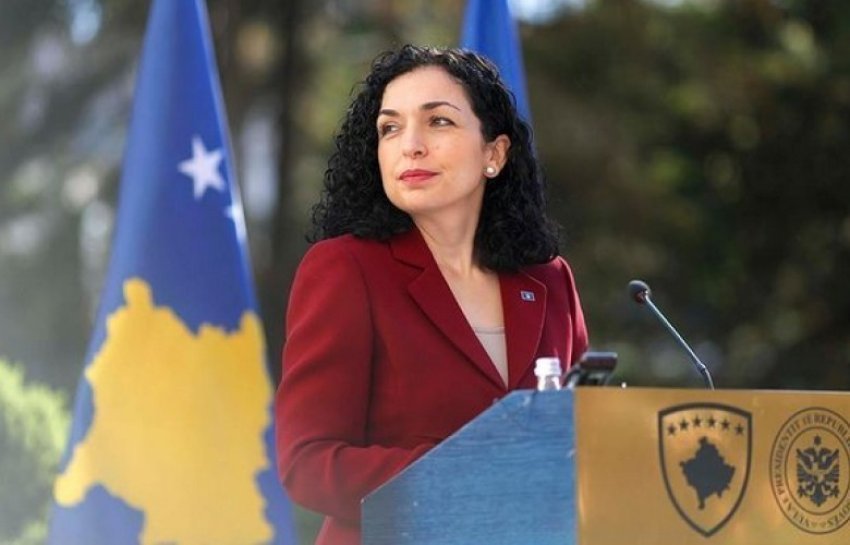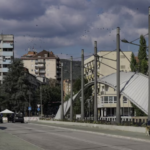A scandal has occurred at the Skopje airport. Security personnel at this airport attempted to detain and infringe upon the rights of Kosovo’s President, Vjosa Osmani, as she was departing from this airport to attend an event in Slovenia. These individuals forced the president to submit her handbag to a scanner and even requested that her phone be scanned.
Personal belongings are routinely checked for ordinary citizens, and such checks are non-negotiable. However, according to international agreements, particularly the Vienna Diplomatic Convention, which governs state conduct concerning individuals designated by this convention, no one, at any airport, port, or border crossing, is permitted to inspect the personal belongings of a president, prime minister, or other persons with diplomatic status.
Nevertheless, one or more Skopje airport security personnel dared to violate this international rule and attempt to infringe upon international law in this instance. These individuals are not merely acting on their own or as a group of individuals. They were ordered by someone with special authority within Macedonian institutions to carry out this act, which created a scandal in the relations between the two neighboring countries.
For this reason, I do not see the Skopje airport scandal as an act against the president as much as against Kosovo, sponsored by Serbian and Russian circles within the government and institutions of North Macedonia. Any such act against Kosovo authorities, instigated from any country or airport, is an act against the state of Kosovo and its independence. But it seems that North Macedonia is a country where diversions, such as last Thursday’s in Skopje, are easily experimented with.
North Macedonia is known as a country with a mixed composition and sentiments both for and against various causes. Undoubtedly, Albanians are pro-Euro-Atlantic. Some Macedonians also share this stance. However, certain segments of its population are pro-Serbian and pro-Bulgarian. The fragmentation of the public into pro and con has also produced fragmentation within the Macedonian political spectrum. If Albanians are fragmented, they do so simply for power interests, remaining within their political family. But they are united in their support for North Macedonia’s Euro-Atlantic orientation. This is also confirmed by continuous survey data.
On the contrary, the majority of Macedonians are anti-Western. This occurs because certain Macedonian politicians foster hatred towards Albanians, and their hatred operates on the principle, “The friend of my enemy is my enemy!” The fact that Albanians are pro-Western prompts Macedonians, or a large part of them, to follow a pro-Eastern, pro-Russian course. If we add to this the Russian and Serbian investment in this sector of belief and orientation among these Macedonian groups, we can understand their active position against Albanians and, in this specific case, against Kosovo.
On the other hand, such actions as the diversion by anti-Albanian Macedonian segments against Vjosa Osmani prove how easily the situation in this country can be destabilized. The Interior Ministry in Skopje issued a statement on this occasion, focusing more on the interference of the security staff of the parliament head, Afrim Gashi, than on the violation of Macedonian and international law by Skopje airport security forces. Someone in that ministry has taken it upon themselves to shift the blame onto those who protected Kosovo’s president, thus exonerating the perpetrators of this bandit act. This is another proof that pro-Serbian and pro-Russian segments within the North Macedonian state administration have been emboldened and dare to carry out such unacceptable and illegal acts.
Therefore, I view the incident at Skopje airport, where the rights and dignity of Kosovo’s head of state were violated, with concern beyond the borders of that event. It may be a signal that the state of North Macedonia can be easily destabilized, and its destabilization will lead to the dissolution of this state, which means war. At that point, Skopje will no longer be the capital of North Macedonia but will become the capital of Dardania, as it was in the ancient and modern times of human society! It is in the interest of both Macedonians and Albanians to live in peace and harmony within a shared state. But if Macedonians and their politicians seek war, they should know that they have lost the war even before it has begun! Compromise and respect for Albanians, including the state of Kosovo, is the only alternative for peace!







